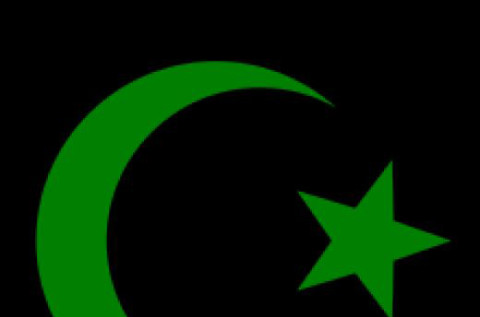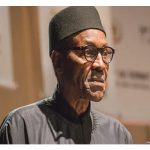OPINION: Muslims, Fasting and the Month of Ramadan in Nigeria
Articles/Opinion, Featured Contributors/Columnists, Latest Headlines Thursday, June 23rd, 2016
By Leo Igwe
BALTIMORE, MD (AFRICAN EXAMINER) – I have been contemplating for some time, particularly in recent weeks, over this month of Ramadan and the ritual of fasting because there seems to be some compulsion in the Muslim majority states for all persons to fast even if they are not Muslims.
Do not get me wrong. Muslims have the right to fast as demanded by their faith. They can even choose to fast for two months or more if they wish to do so. The problem is that there is this tendency to force all Muslims and non-Muslims to observe the Ramadan. In Kaduna, a 41-year-old carpenter was attacked and seriously injured by a Muslim gang for eating during the fasting hours. I mean what was their business with a Christian who decided to eat. These Muslims have out of their own volition chosen to fast. Why attack somebody whose own faith enjoins him to eat when people of other faiths have chosen to fast?
There have been reports of similar attacks on Muslims and non-Muslims alike in other parts of the world. My issue here is this: if indeed there is no compulsion in Islam, why should Muslims and non Muslims be compelled to fast? Why should a Christian living in Muslim majority communities be attacked, harassed or arrested for eating during the ‘Muslim fasting hours’?
Growing up in Ibadan in South West Nigeria where there is a mix of Muslims and Christians, I had a different and interesting experience of fasting during the month of Ramadan.
I used to share an apartment with a practicing Muslim who fasted during Ramadan. I spent my childhood and teenage years in South East Nigeria and did not know much about the practice of Ramadan. Thus my first experience of Ramadan with my Muslim friend was an eye-opener. Though my friend knew I was not a Muslim, he tried luring me into fasting with him but I declined. I refused to fast with him not only because I was not a Muslim but also because I could not just suddenly change my eating habits.
My Muslim friend used to wake up very early, about 4am to prepare food. I found the noise from his movement at this time and the use of kitchen utensils quite disturbing but I tolerated it because he made me to understand that it was something very important to him and his religion to eat before sunrise.
However on this particular day, he finished preparing the food and invited me to come and eat with him, at about 5.00 am! I declined and he looked at me as if embarrassed, or may be disappointed. He stared at me for a while as if he was saying “Do you really mean that you would not come to join me to start fasting? I told him that I was not used to eating at that time. He invited me again the next day and I gave him the same reply and he never bothered me again till the fasting period ended.
I was shocked by the quantity of food my Muslim friend consumed very early in the month during the month of Ramadan. He used to start early to save money to buy large quantity of beans, rice, garri, amala for the fasting period. Don’t you notice some contradiction in this? Buying food for a fasting period! I found that quite curious.
Days and weeks before the Ramadan my friend would be stockpiling food and when I asked him why? He would say “Don’t you know that our Ramadan is approaching?” Really? My friend was buying and storing up food like somebody who was preparing for a feast. And I wondered: Is the Ramadan for eating food or for abstaining from eating and drinking? I could recall that some years ago; the World Food Program declared that people around the world consumed more food during the month of Ramadan than at any other period of the year. I totally agree with this and if you critically think about it, that should not be the case. There should be less consumption of food during the fasting period.
Anyway, before sunrise my friend would gulp some large quantity of Amala with ‘assorted meat’. He consumed more food in the morning than I could consume the whole day. Actually if I ate that quantity of food in the morning, I won’t be able to work during the day. I would have to spend hours lying down on the bed so that the food would digest. My muslim friend would eat the same quantity of food at sunset and he continued this feeding and fasting regime till the end of the Ramadan. At a point I wondered if the month of Ramadan was actually a fasting period or a fattening month. In fact I could not comprehend the idea that people ate a lot food to start fasting. What kind of fasting is that?
That notwithstanding, I noticed that both Muslims and non-Muslims in South West Nigeria observed the Ramadan in different ways. There were non-Muslims who fasted in solidarity with their muslim friends or family members. These non-Muslims usually had rich or well-to-do Muslim neighbours and they used to go to their homes to break the fast with sumptuous meals every evening throughout the month of Ramadan! So for poor non-Muslims, solidarity fasting was a way of augmenting their feeding at least for a few weeks.
There were some Muslims friends who did selective Ramadan. They fasted on certain days and abstain from fasting on other days. Others used to fast for some hours each day and ate when they became very hungry. Still others fasted publicly or presented themselves as fasting publicly but they ate secretly. There was no gang or group that was policing people and compelling everybody to abstain from eating and drinking. Muslims in northern Nigeria should emulate their counterparts in South West and understand that fasting during the month of Ramadan is – and should be by choice not by force.
Related Posts
Short URL: https://www.africanexaminer.com/?p=33746






















